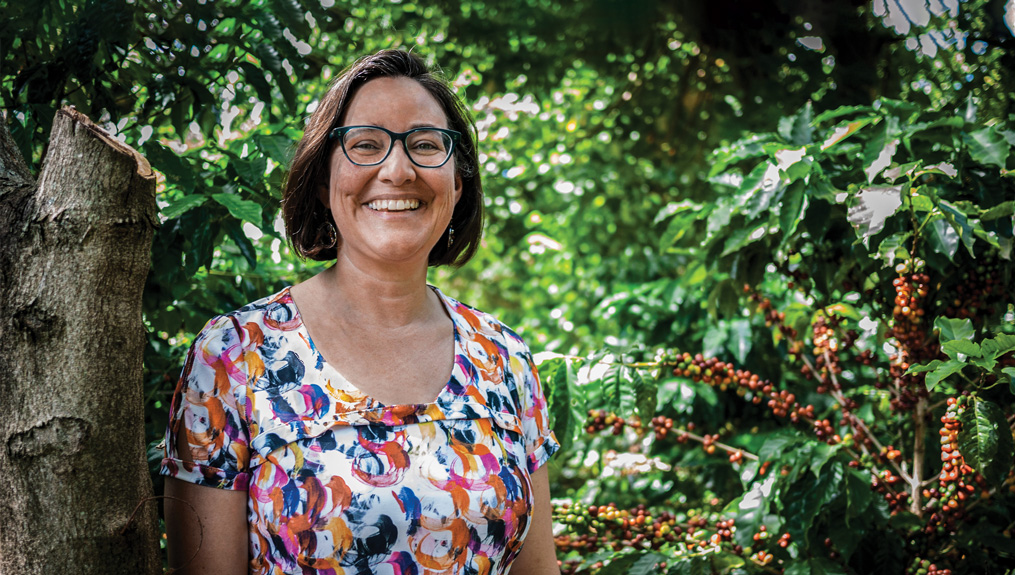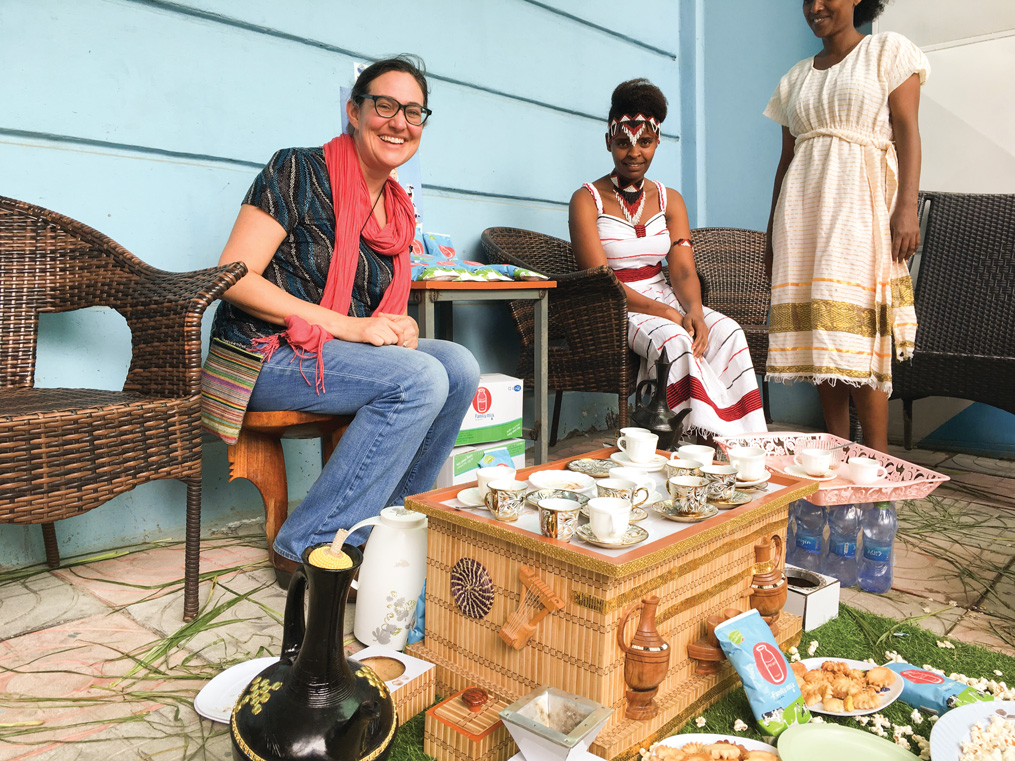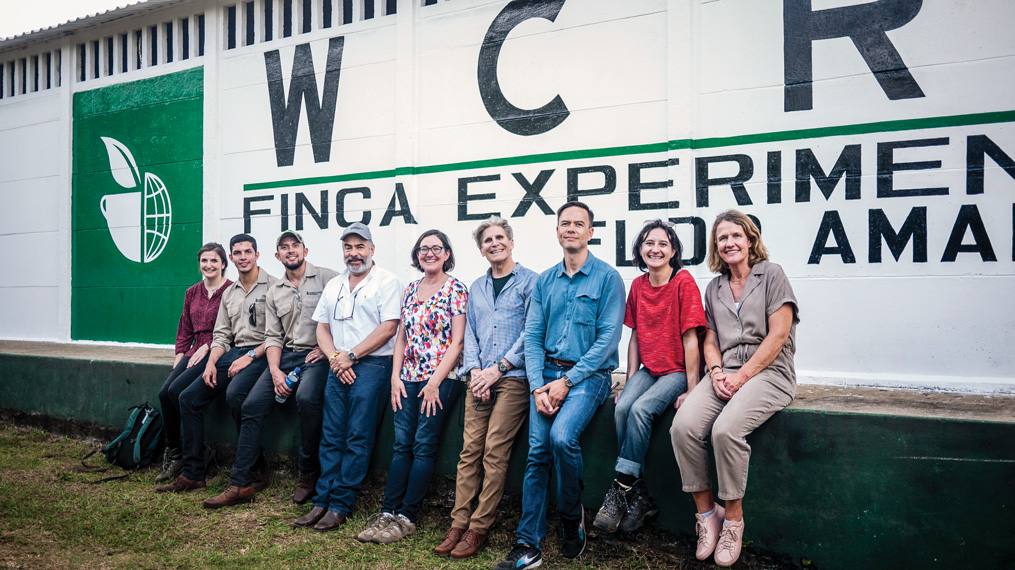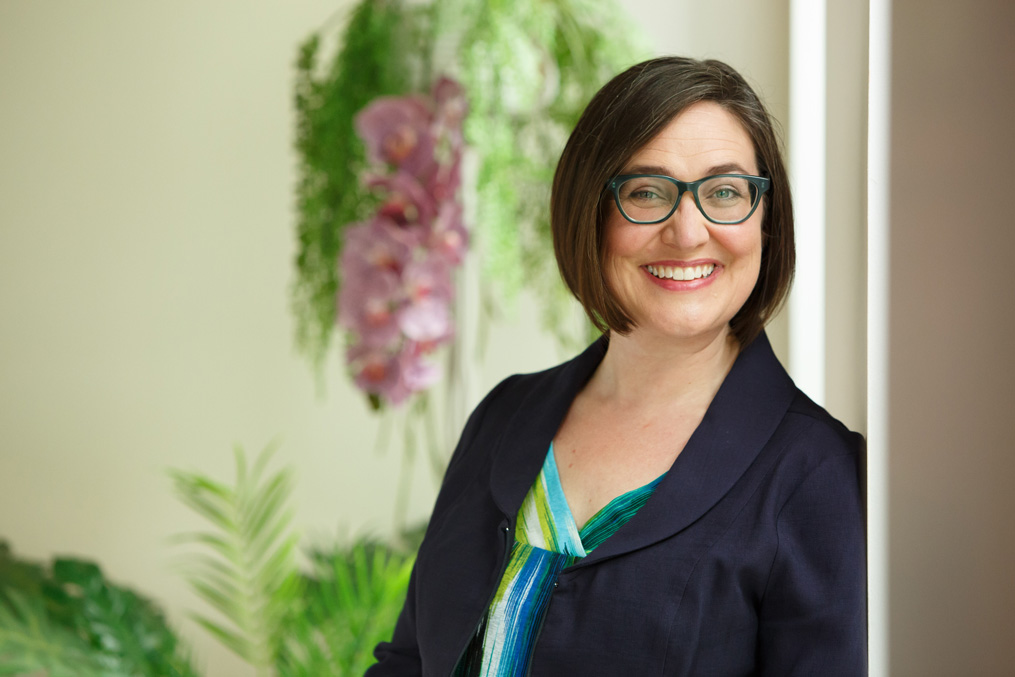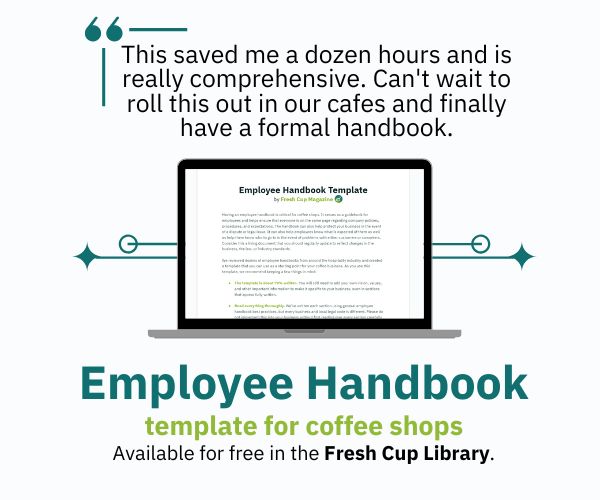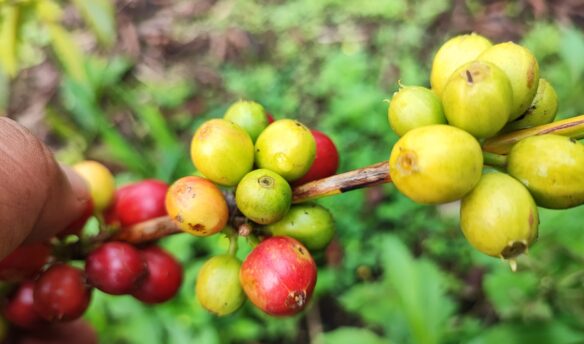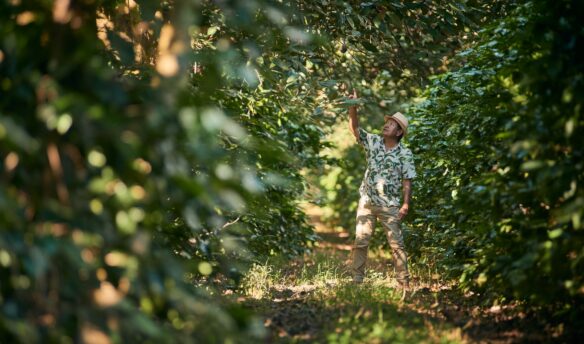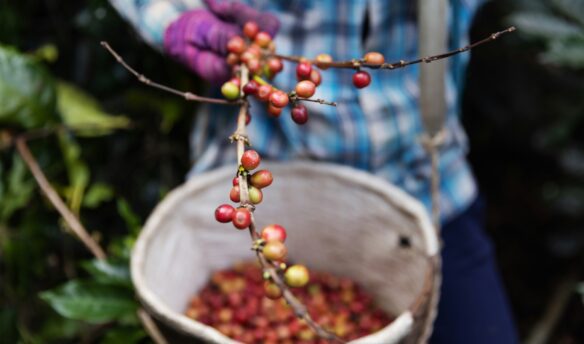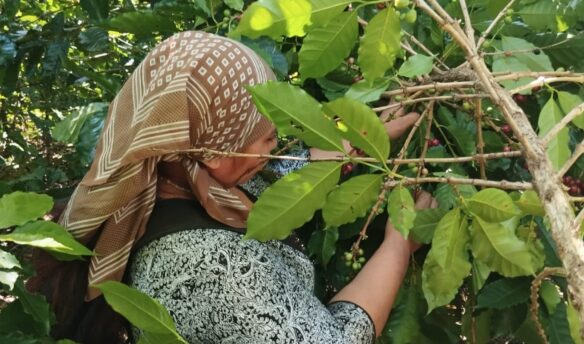Photo courtesy of World Coffee Research
This June celebrated the one-year anniversary of Jennifer “Vern” Long stepping into the role of CEO of World Coffee Research.
In that time, she has led the team to build a refreshed five-year research strategy, which places new emphasis on preserving origin diversity, while continuing to build upon the programs, networks, and trials WCR has undertaken in its first eight years.
A plant breeder by training, Long came to WCR with more than two decades of experience in international agricultural research with a focus on smallholders, including serving as director of the Office of Agricultural Research & Policy at the U.S. Agency for International Development (USAID).
“She is deeply knowledgeable and passionate about international agricultural research, is a natural leader and entrepreneurial thinker, and is an experienced organization builder,” said WCR founder and outgoing CEO Tim Schilling upon announcing her hiring. “The coffee world doesn’t know her yet, but it will.”
Read on to get to know Vern Long.
This interview has been edited for length and clarity.
Fresh Cup : Let’s first start with your “origin story”—I’ve read that your plant geneticist career started on a road trip as a teenager, reading an issue of National Geographic…
Vern Long: My affection for genetic diversity in agriculture definitely started with that road trip….I spent a tremendous amount of time reading on that very, very long and winding path from the East Coast to the West Coast. The article was about the heroic acts of gene bank curators around the world, conserving unique plants under harrowing conditions all for the future of food security—it was both intellectually fascinating and deeply meaningful. I knew then I wanted to be a part of this.
The thing that is really striking…is that the work they were reporting in that magazine had been initiated in the ‘70s and ‘80s, the period when the average citizen really started to understand the importance of genetic diversity. As a global community, we are so thankful they did that, because now those materials are preserved for many crops. That’s what’s tremendously important in coffee right now, is that we haven’t done enough of what’s required to conserve the genetic diversity that underpins the future of coffee agriculture.
What we need to do as a community is make sure that we take steps to conserve and preserve that material, and then in 20 years, when some kid is reading a new edition of National Geographic about heroic gene banks curators and how genetic diversity is supported, while coffee faces down the challenges of climate change, that that’s done. Personally, I was really clueless as a teenager about all these things, but it really captured my attention, the amazing diversity in crops and what you can do with it. And so that led to a lot of decisions around pursuing first botany then research in tropical agriculture.
FC: What can we expect to see from WCR moving forward under your leadership? What goals do you have as CEO?
VL: To date, we have eight years of programs that are finally yielding the first fruits, as it were, that we are collecting data on the yield of new varieties, F1 hybrids. And those programs will continue to generate outputs and information and knowledge that will be important to the coffee sector at large.
We have been in deep ‘strategy mode.’ We’ve developed an organizational strategy that will carry us forward for the next five years, and launched that in July. We completed a wide-ranging global consultation of stakeholders, including everyone from farmers to national governments, to roasters, retailers, and suppliers, to really listen to what the community feels are the key constraints to coffee production and their priorities. And specifically, what is the R&D agenda that will contribute to coffee sustainability in the 21st century. We’ve listened very carefully to the perspectives of the broader community, and tailored our strategy to that.
What is crystal clear is the importance to the coffee industry of origin diversity. It contributes to the availability of unique flavors that roasters rely on and consumers want, it helps mitigate supply chain risk in the face of climate change or—as we are experiencing now—a global pandemic, and when you have many countries with flourishing coffee sectors, you are also distributing the economic benefits of coffee more widely among farmers globally. Key objectives are to improve the profitability of climate-resilient coffee production, to increase quality, and to mitigate supply chain risk, all of which a smart R&D agenda can achieve.
FC: What are the overarching challenges that agriculture faces in general, versus what distinctly affects the coffee industry?
VL: Coffee is a tremendously valuable business globally, and yet it rests on the back of innovation that is predominantly generated by national programs or national researchers in low- and middle-income countries. You have a significant asymmetry between those who want to buy coffee and consume it in upper middle-income and high-income countries, and the fact that innovations for farmers are underfunded. But those farm-level innovations are the backbone for the success of every coffee business in the world—if farmers can’t succeed, no one can.
All of agriculture is essentially running to stand still—there’s always a new pest, a new disease, emerging constraints to production that make it more challenging….Farmers are constantly responding to the dynamic environment in which they operate and trying to make decisions with what information they have. If they are starved of innovations to meet these challenges as they arise, they will fall further and further behind.
Exacerbating this challenge is climate change. All of the knowledge that farmers have accumulated to help them make decisions about their farms—through experience and through social networks and sources of information in their local communities—is assuming certain things stay predictable. And the challenge of climate change is that we are entering a time of tremendous unpredictability.
Farmers depend on innovations, like how many inches between your plants are optimal given the rain we expect to get.…[But] because rainfall patterns are changing dramatically, you might do a different kind of management approach, or you might use a different variety that does well in this new highly variable environment. But you’re depending on your national government to generate those research outputs—the varieties, the technologies, the information on how to plant or manage your coffee differently now. The resources available to those national programs is really thin, and yet this entire global industry [is] relying on this very starved resource environment for those innovations.
This asymmetry is the real challenge we face in coffee.
In other crops, they have the same challenge: there are under-resourced researchers focused on food security crops in those countries. The distinction is that national governments have a high incentive to spend more money on research for food crops because if they don’t, people go hungry and there are riots in the streets.
The exciting thing is that you can build from the same methods and tools that researchers have developed for better-funded crops, like corn and soybeans, on coffee—we don’t have to invent our own tools. So if a government—for example, Ethiopia or Uganda—is spending money to upgrade its research capacity in some other crops because of their significance to food security, there’s no reason that we can’t work to amplify those investments to advance coffee research in key countries. And going a step further, as farmers seek to reduce their risk from production of a single crop, there is opportunity to partner with researchers in other crops to optimize production systems with farmers to increase the diversity of crops in the field—food crops, spices, and coffee—that can help generate more consistent revenue for farmers while also ensuring complementarity of innovations that work for farmers in the field.
FC: Why is it important for today’s café owners and coffee consumers to pay attention to the work and research being done at the producing level?
VL: People care about where their coffee comes from. There’s a tremendous interest among consumers to understand where their food comes from, where their coffee comes from, what were the conditions of its production, were people exploited in its production. There’s a real commitment and concern about the welfare of the families and communities that produce the coffee that we drink.
The coffee we have today, and the conditions under which it is produced, are a result of the research of the past. The coffee we drink tomorrow—and the conditions of its production—will be a result of the research we do today.
What farmers do and how they do it is a function of what’s available to them. If a farmer has innovations that enable them to be more efficient with their use of water or efficient with their use of fertilizer or enable them to avoid using pesticides, they will. That’s what science does, it gives farmers choice. Agricultural R&D makes it possible for farmers to do things because the innovations are there for them.
The signals that consumers send about their priorities matter, too. We make choices as consumers about the world we want to live in, and we communicate that through the products that we buy and consume. That helps orient the research and development agenda to respond to those priorities.
The technology is there; how we use it and when we use it is a question of what the demand is in the market.
[Additionally,] connectivity with origin countries is increasing. Coffee drinkers are seeing the stories of the farmer who’s produced that coffee, and that the coffee didn’t just come from a wild tree in the forest—somebody planted that tree intentionally and took care of it. And the more consumers can understand where their food comes from, the more we can be educated about informing how our food is going to come to us in the future.
FC: What has been your favorite thing about coffee since you’ve stepped into this role?
VL: I think what’s been most exciting about joining WCR is our global footprint of people. At any moment, on WhatsApp, on my phone, I can ping Nuzul in Indonesia or Donnell in the Philippines, Jesslin in Nicaragua or Maureen in Uganda, and get an instant answer to my question about coffee in their country. We are such a tight team and yet we’re all over the world and it’s really exciting to be part of an organization that has such a strong and warm community. Our team is tremendously passionate about coffee, and it’s infectious enthusiasm. In agriculture generally, people are deeply committed to the work—folks are feeding the world after all. But in coffee, it goes a step further—people are so personally invested and enthusiastic about it because coffee is truly a part of people’s life socially and culturally, beyond the field.
It’s a social drink, it brings communities together. I mean, you drink it with friends, it creates a warmth around it—that’s been really, really wonderful.
FC: Any final thoughts for our readers?
VL: Climate change is the defining issue of our time—especially for agriculture. We do need to change the innovations and tools that farmers have—we can’t continue business as usual. There needs to be a commitment to research, to develop innovations that help farmers thrive despite this challenging environment.
R&D is a part of the solution, but it’s not the total solution. It’s critical that we work together to figure out other interventions and other ways of tackling some of these big challenges based in coffee. But R&D has a place in that, and we really want to make sure that we’re being held accountable to the community to do the right thing.

